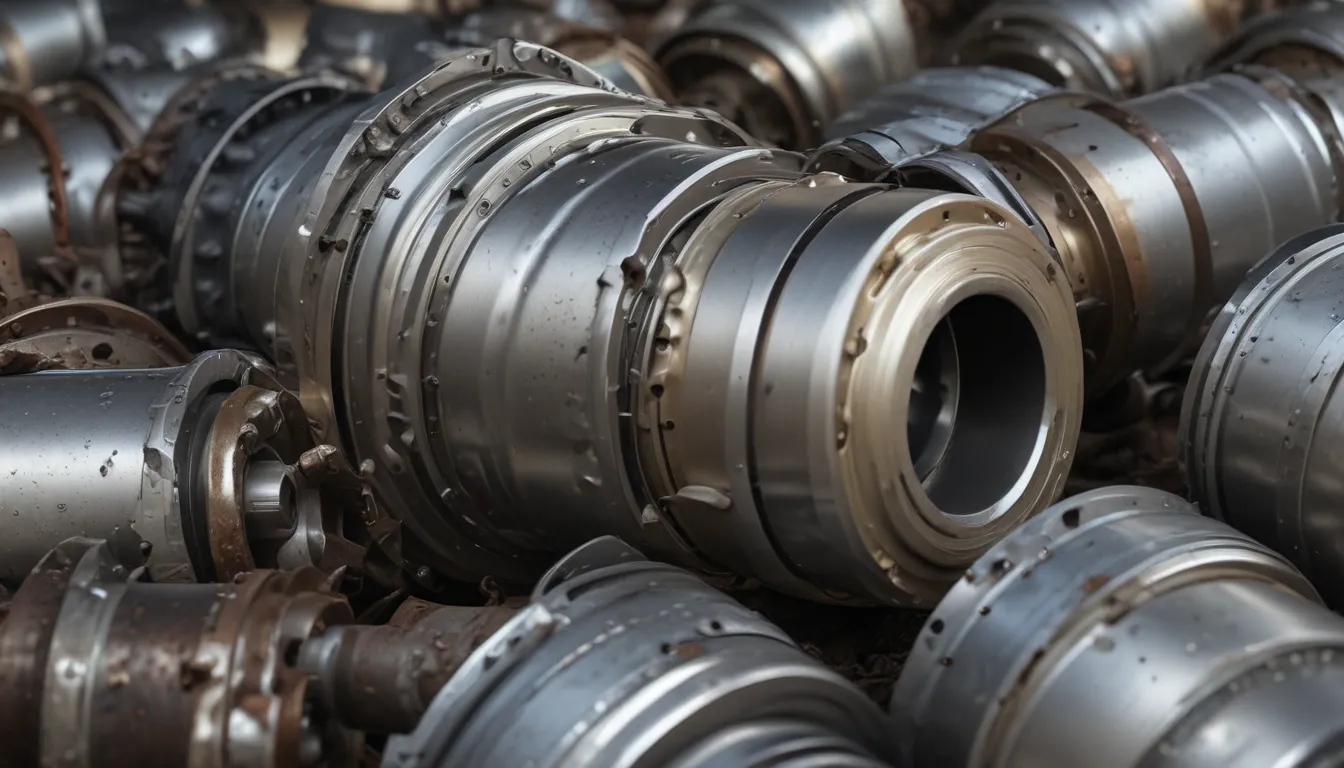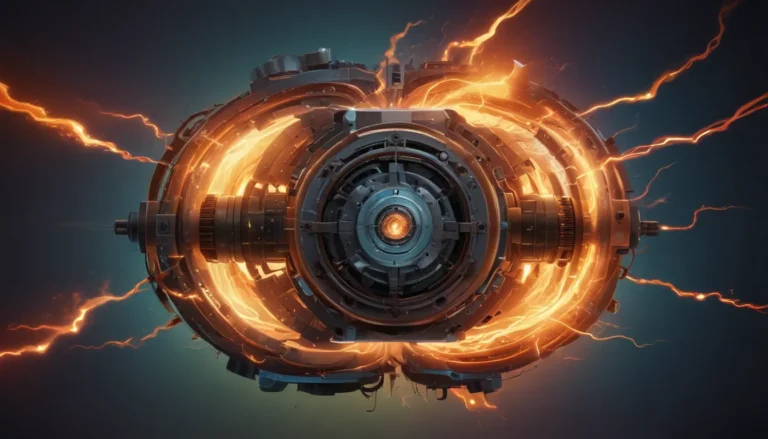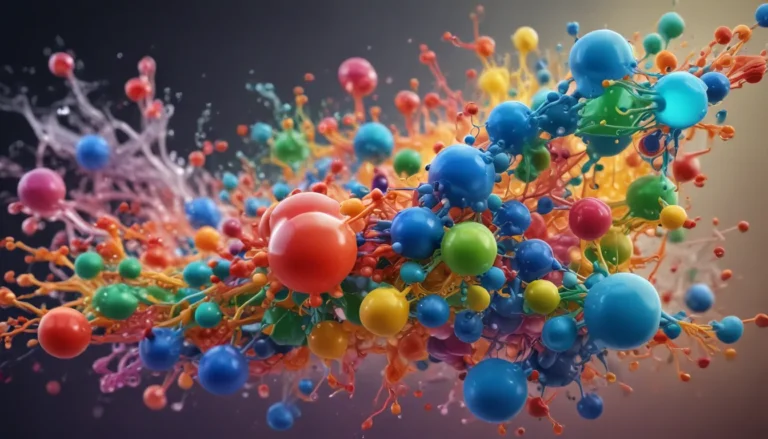A Note About Images: The images used in our articles are for illustration purposes only and may not exactly match the content. They are meant to engage readers, but the text should be relied upon for accurate information.
Corrosion is an inevitable process that affects various materials, including metals. Alloy corrosion, in particular, has gained considerable attention due to its impact on industries like construction and manufacturing. Alloys, formed by combining two or more metals, possess enhanced properties such as strength, durability, and resistance to wear and tear. Despite these advantages, alloys are susceptible to corrosion. In this article, we will delve into the intriguing world of alloy corrosion and uncover 18 extraordinary facts that every chemistry enthusiast and industry professional should know. From the different types of alloy corrosion to prevention methods and innovative solutions, fasten your seatbelts for a journey into the captivating realm of alloy corrosion!
Key Takeaways:
- Alloy corrosion is a natural process where metals deteriorate over time and can be prevented through protective coatings and maintenance.
- Saltwater and high temperatures accelerate corrosion, impacting buildings, infrastructure, and electronic devices.
- Scientists are developing innovative solutions to combat alloy corrosion.
Understanding Alloy Corrosion
Alloy corrosion is a common natural phenomenon affecting metals like iron, aluminum, and copper. When metals react with their environment, they undergo a process that leads to material deterioration over time. The primary cause of alloy corrosion is electrochemical reactions that occur when moisture or corrosive substances come into contact with an alloy, resulting in oxidation, also known as corrosion.
Factors Accelerating Alloy Corrosion
- Saltwater: Exposure to saltwater accelerates corrosion due to the high concentration of salt acting as an electrolyte.
- Temperature: High temperatures can speed up the chemical reactions involved in corrosion, leading to faster degradation of alloys.
Types of Alloy Corrosion
- Galvanic Corrosion: Occurs when two dissimilar metals, along with an electrolyte, form a galvanic cell that accelerates corrosion.
- Crevice Corrosion: A specific type of localized corrosion that occurs in narrow crevices where corrosive substances are trapped, leading to accelerated corrosion.
Prevention of Alloy Corrosion
Several methods can be employed to prevent or minimize alloy corrosion:
– Protective Coatings: Applying coatings to alloys can provide a barrier against corrosive agents.
– Sacrificial Anodes: Using sacrificial metals that corrode first to protect the primary alloy.
– Cathodic Protection: Employing electrochemical methods to prevent corrosion.
– Environment Control: Proper maintenance and storage practices can help control the conditions that promote corrosion.
Environmental Influences on Alloy Corrosion
- pH Level: The acidity or alkalinity of the environment impacts the corrosion rate, with acidic environments accelerating corrosion and alkaline environments slowing it down.
- Temperature and Humidity: Environmental factors like humidity and temperature can affect the rate of alloy corrosion, with higher levels increasing corrosion rates and lower levels slowing it down.
Impact of Alloy Corrosion
- Buildings and Infrastructure: Corrosion can compromise the structural integrity of buildings and infrastructure, requiring regular inspection and maintenance to prevent disasters.
- Automotive Industry: Automobiles are susceptible to corrosion due to exposure to environmental conditions, leading manufacturers to use corrosion-resistant alloys and protective coatings.
Innovative Solutions and Research
Scientists and engineers are working on developing new materials and techniques to combat alloy corrosion. Ongoing research focuses on improving alloy compositions, surface treatments, and corrosion prevention methods to reduce the impact of corrosion in various industries.
Conclusion
Alloy corrosion, while complex, can be managed through proper selection of alloys, protective coatings, and corrosion prevention techniques. By staying informed and implementing proactive measures, the lifespan and durability of metal components can be extended. With advancements in corrosion science, new solutions and treatments are continuously being developed to address the challenges posed by alloy corrosion.
FAQs
Q: What causes alloy corrosion?
A: Alloy corrosion is caused by factors like exposure to moisture, chemicals, and galvanic corrosion when dissimilar metals interact in the presence of an electrolyte.
Q: How can alloy corrosion be prevented?
A: Alloy corrosion can be prevented through protective coatings, regular maintenance, and corrosion inhibitors that create a protective barrier.
Q: Can alloy corrosion be reversed?
A: In some cases, early detection can allow for treatments like passivation or anodizing to reverse corrosion. However, prevention is generally more effective than reversal.
Q: Is alloy corrosion a significant problem?
A: Yes, alloy corrosion poses challenges in various industries, leading to significant costs in repairs, replacements, and maintenance.
Q: Are there any benefits to alloy corrosion?
A: Some forms of corrosion can result in protective layers that safeguard the alloy from further deterioration. Additionally, corrosion studies have led to the development of more resistant alloys and coatings.
Explore the mysteries of rust and galvanic corrosion, discover corrosion prevention methods, and protect your assets from corrosion with innovative solutions and research. Trust in our commitment to quality and authenticity as you learn and explore the fascinating world of alloy corrosion.






